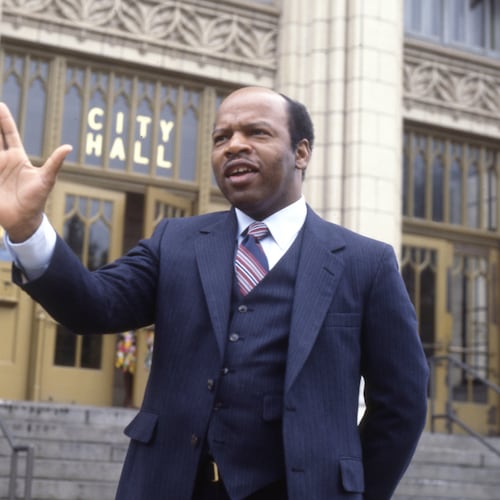The death of civil rights giant John Lewis has renewed attention on the Voting Rights Act of 1965, which was signed into law 55 years ago on Aug. 6 by President Lyndon Johnson.
Johnson, the towering Texan who was a master of legislative maneuvering, signed the bill into law just a few months after Lewis and a group of voting rights activists were attacked by Alabama state troopers on the Edmund Pettus Bridge.
Seven years ago, the U.S. Supreme Court struck down a key enforcement provision, which advocates say paved the way for the return of widespread minority voter suppression.
Former President Barack Obama used Lewis’ funeral in Atlanta last week to warn the voting rights and equal opportunity Lewis championed are threatened heading into the 2020 election.
»MORE: Trump says he ‘doesn’t know’ how history will remember John Lewis
Obama called on Congress to renew the Voting Rights Act, which it has left unchanged since the Supreme Court’s ruling.
“You want to honor John? Let’s honor him by revitalizing the law that he was willing to die for,” Obama said, arguing that the bipartisan praise for the Georgia congressman since his death isn’t enough.
Obama endorsed ending the Senate filibuster if that is what’s needed to pass an overhauled voting law. He called the procedural hurdle that effectively requires 60 votes to pass major legislation a “Jim Crow relic,” referring to the segregation era.
The Democratic-led House has adopted a sweeping rewrite of the Voting Rights Act, now named for Lewis. It faces opposition in the Republican-led Senate and likely couldn’t get 60 votes even if Democrats reclaim a narrow majority after the November elections.
Obama noted the original law and its renewals drew Republican and Democratic votes in Congress and were signed by presidents from both parties. Obama singled out former President George W. Bush, a Republican, who also spoke at Lewis’ funeral.
“There are those in power doing their darnedest to discourage people from voting by closing polling locations and targeting minorities and students with restrictive ID laws ... even undermining the Postal Service in an election that’s going to be dependent on mail-in ballots.”
Hours before Lewis’ funeral, President Donald Trump suggested delaying the November election, saying a surge of mail ballots because of the coronavirus pandemic will threaten the election’s legitimacy. Trump has opposed moves in Congress to help the financially struggling U.S. Postal Service handle the sharp uptick in mail voting.
Credit: AJC
The Voting Rights Act provided the government a way to enforce the 15th Amendment, outlawed literacy tests and other practices used to disenfranchise racial and language minorities, and provided nationwide protection for voting rights.
The law required certain communities to get approval from federal authorities before making any changes that would affect voting. In 2013, the court ruled the coverage formula was unconstitutional, with Chief Justice John Roberts writing voter registration and turnout had risen dramatically and reasoned that the formula was “based on decades-old data and eradicated practices.”
“Racial disparity in those numbers was compelling evidence justifying the preclearance remedy and the coverage formula,” he wrote. “There is no longer such a disparity.”
Lewis was one of the original Freedom Riders, activists who challenged segregation on commercial bus lines in the Deep South during the early 1960s. He was the youngest speaker at the 1963 March on Washington, where Martin Luther King Jr. delivered his “I Have a Dream” speech. Bloody Sunday and the voting rights marches occurred two years later, months before Johnson signed the bill.
Obama awarded Lewis the Medal of Freedom in 2011.
About the Author
The Latest
Featured


